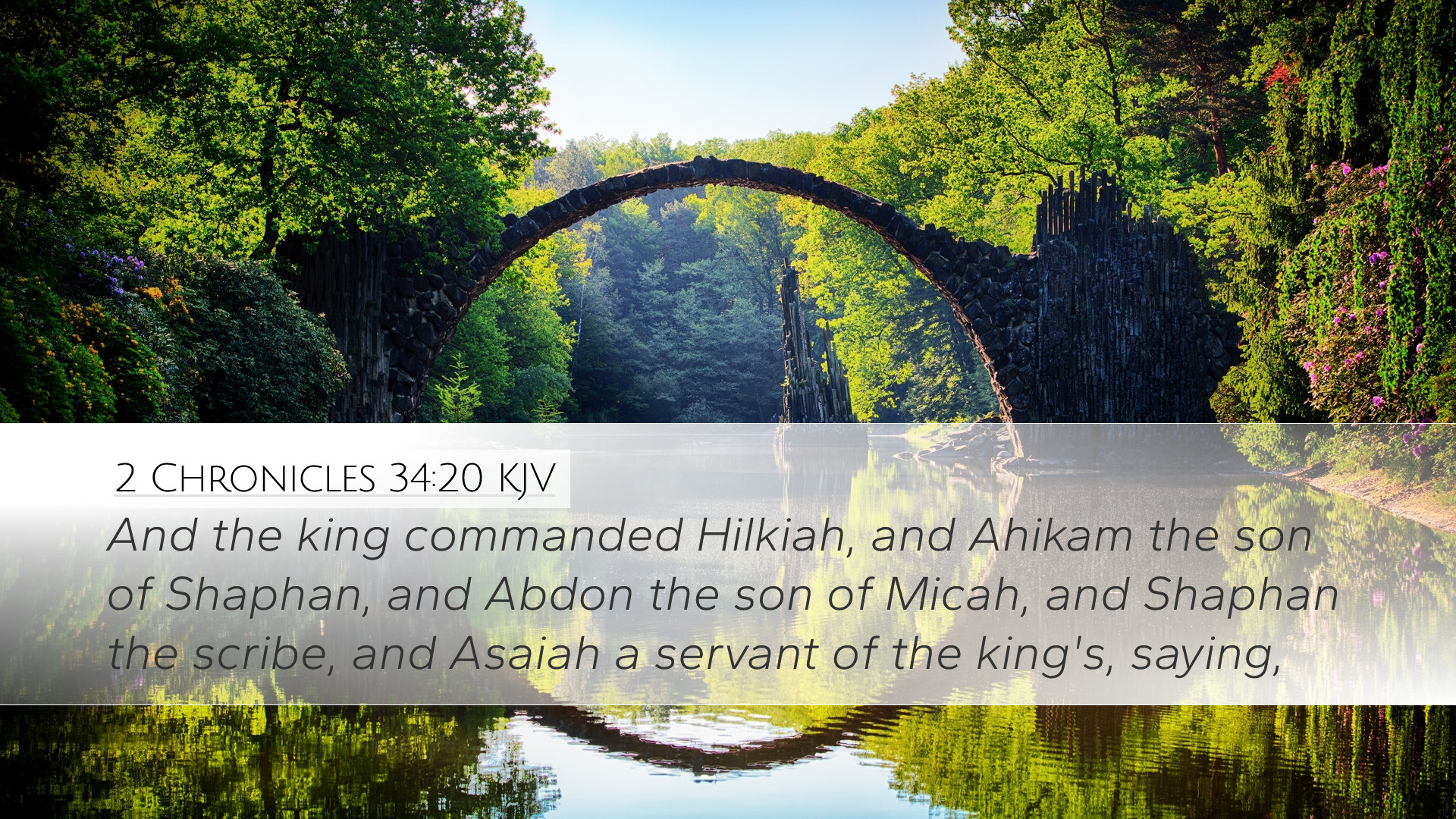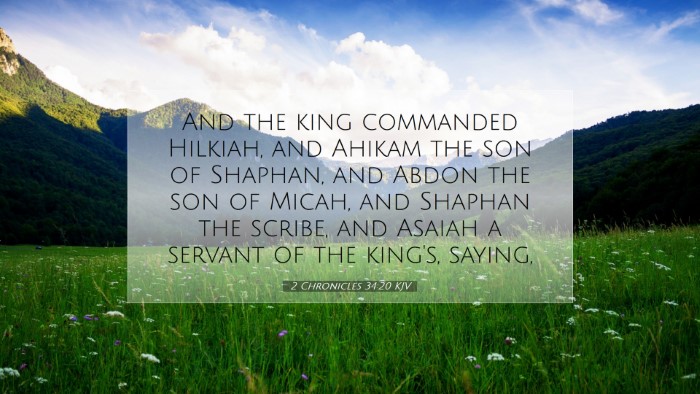Bible Commentary on 2 Chronicles 34:20
Verse (2 Chronicles 34:20): "And the king commanded Hilkiah and Ahikam the son of Shaphan, and Abdon the son of Micah, and Shaphan the scribe, and Asaiah a servant of the king's, saying,."
Introduction
This pivotal verse occurs in the context of King Josiah’s reign, particularly during his significant reform efforts after the discovery of the Book of the Law in the temple. This commentary explores the thematic implications, historical context, and spiritual lessons derived from this passage as gleaned from notable public domain commentaries.
The Leadership of King Josiah
During the reign of King Josiah, the spiritual landscape of Judah had been severely compromised due to idolatry and the neglect of the Law. Notably, Matthew Henry remarks on Josiah's character, emphasizing his youthful zeal for reform and commitment to follow God’s statutes. Josiah's leadership epitomizes how a godly ruler can impact an entire nation.
- Spiritual Insight: Josiah’s initiative illustrates the principle of leadership in righteousness. His willingness to seek the Lord and act upon the discovery of the Law demonstrates an understanding of biblical accountability.
Commanding Authority and Responsibility
In the verse, we see Josiah commanding key figures in his administration. The mention of individuals such as Hilkiah and Shaphan reflects the collaborative nature of spiritual reform and accountability.
- Albert Barnes highlights the importance of delegation in leadership, noting that good leaders do not work in isolation but rather surround themselves with capable individuals to effect change.
- Moreover, the choice of these men suggests a reliance on those who have proven themselves spiritually and politically.
The Role of Hilkiah
Adam Clarke provides poignant insights about Hilkiah the high priest. He was instrumental in the discovery of the Book of the Law, which set the stage for the reforms. Clarke points out that Hilkiah's actions were not only pivotal for their immediate context but also for the future of Israelite worship.
- Historical Context: Hilkiah's discovery represents a revival of the covenantal relationship between God and His people, showing how neglect of Scripture leads to spiritual decline.
Theological Implications
The verse's implications go beyond mere historical facts. It resonates with the modern-day church's need for revival and return to biblical foundations. Josiah's leadership serves as a model for church leaders today.
- Spiritual Revival: The urgent command by Josiah underscores an essential theme: genuine revival often emerges from a collective recognition of the need for God’s Word and a commitment to follow it.
Application for Pastors and Theologians
The exhortation in 2 Chronicles 34:20 can evoke critical reflections among pastors and theologians:
- Leadership: How can church leaders respond effectively when confronted with the need for reform within their congregations?
- Biblical Engagement: In an era of declining scriptural literacy, how can churches prioritize the teaching and application of the Scriptures in meaningful ways?
- Gathering Support: Just as King Josiah rallied support, what practical steps can church leaders take to build a coalition of willing servants for spiritual renewal?
Conclusion
In summary, 2 Chronicles 34:20 provides profound insights into leadership, responsibility, and the need for biblical fidelity. As leaders reflect on the actions of King Josiah, they are reminded of their call to pursue righteousness, seek revival, and uphold the authority of Scripture in all aspects of church life. The legacy of such leadership can foster spiritual renewal and guide generations toward a deeper understanding of God's Word.


